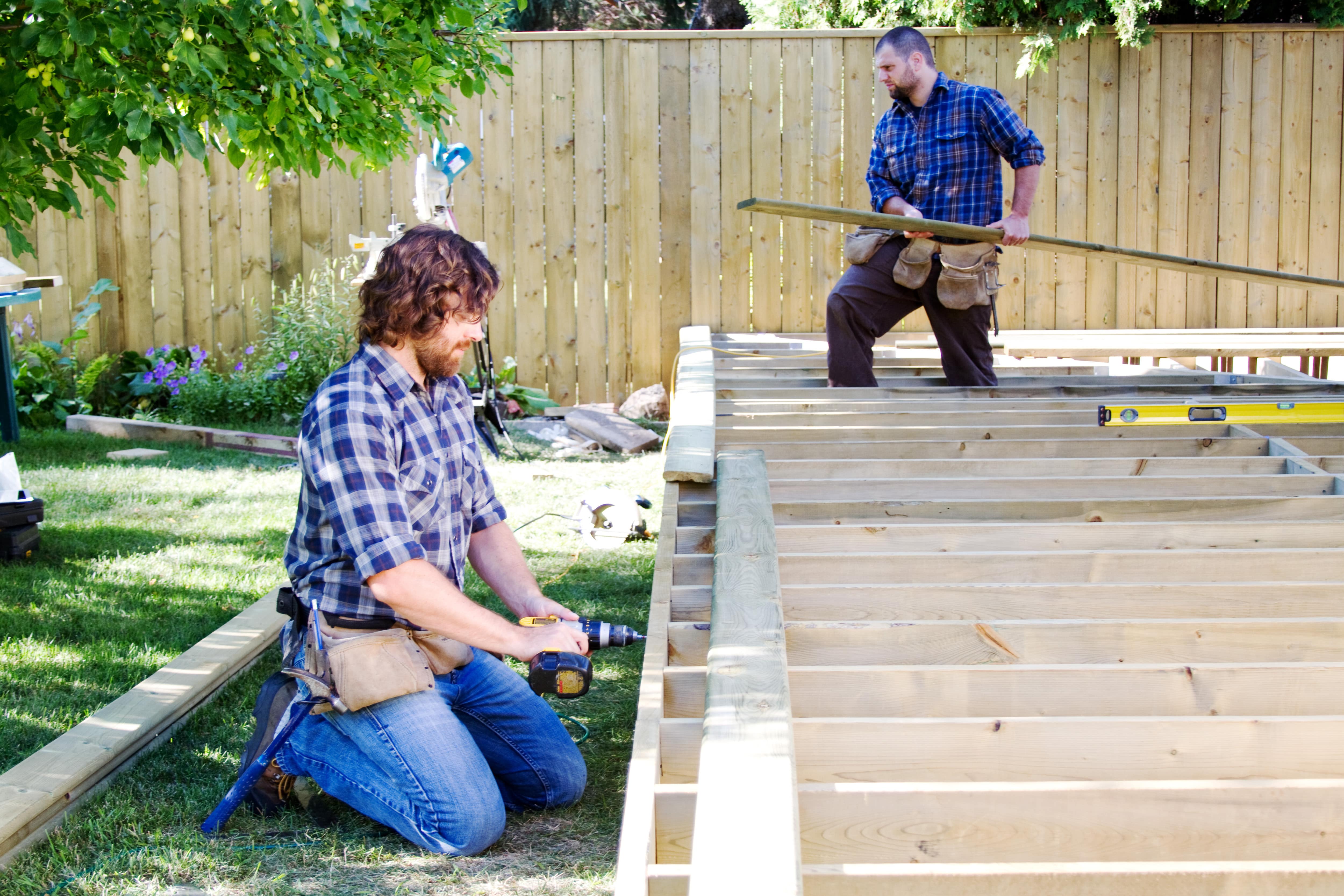
Composite fencing costs range depending on the fence height and length, materials, and location. Difficult terrain can increase fencing costs as well as additional features like gates.
Expect floating deck costs to average between $2,500 and $14,750


A floating deck costs $4,500 on average.
Most homeowners pay between $2,500 and $14,750.
Costs range depending on the deck materials and labor costs, with more complex deck designs carrying higher prices.
Decks made from high-quality wood or fiberglass have the highest prices.
This article was updated using automation technology and thoroughly reviewed for accuracy by HomeAdvisor Editor Ryan Noonan.
Building a floating deck costs an average of $4,500 or $20 to $60 per square foot, three to five times more than building a standard ground-level deck. The most affordable builds start at $500, while large decks made from premium materials can reach $25,000. A floating deck adds versatile outdoor living space and a comfortable spot for gatherings.
The cost to build a floating deck depends on the cost of materials and the amount of labor required.
Labor rates range from $15 to $35 per square foot. Expect to pay an average of $25 per square foot to hire workers such as general contractors and carpenters. Building costs are higher for projects with more complex or custom designs. Complex floating decks may require a designer, while difficult site conditions may necessitate more involved labor.
The cost to build a floating deck will vary dramatically based on the most important element of that deck: the wood. For example, the cost of a cedar deck will differ dramatically from the cost of a composite deck. Here is a breakdown of the different types of woods and what you can expect to pay on a square-foot basis:
Pressure-treated wood: $2–$5
Redwood: $5–$30
Mahogany: $8–$11
Ipe: $10–$20
Tigerwood: $7–$15
Bamboo: $3–$10
Cedar: $3–$7
Aluminum: $15–$20
Fiberglass and composite: $12–$22
Deciding between a DIY build and professional installation comes down to skill level, available time, and project complexity. While installing a deck requires careful planning and heavy labor, a committed DIYer with the right tools can complete a straightforward build. Because a floating deck isn’t anchored to the home, it eliminates the structural tie-in step, which can make DIY installation more approachable.
Hiring a deck pro reduces the risk of costly mistakes, provides access to trade-priced materials, and saves you considerable time—all while ensuring the finished structure meets safety standards and lasts for years.
Even if you plan to build the deck yourself, schedule an evaluation with a local deck company. A contractor can assess the site, offer recommendations, and provide a quote, giving you solid information before you decide whether to DIY or hire out.
Keep your floating deck installation costs budget-friendly with these tips:
Choose a simpler design to keep labor and material costs down.
Opt for materials that suit your space best to ensure longevity and value.
Get quotes from multiple contractors to compare prices and get the best deal.
Be consistent with maintenance to prevent undue wear and avoid repair costs.
No place is more important than your home, which is why HomeAdvisor connects homeowners with local pros to transform their houses into homes they love. To help homeowners prepare for their next project, HomeAdvisor provides readers with accurate cost data and follows strict editorial guidelines. After a project is complete, we survey real customers about the costs to develop the pricing data you see, so you can make the best decisions for you and your home. We pair this data with research from reputable sources, including the U.S. Bureau of Labor Statistics, academic journals, market studies, and interviews with industry experts—all to ensure our prices reflect real-world projects.
From average costs to expert advice, get all the answers you need to get your job done.

Composite fencing costs range depending on the fence height and length, materials, and location. Difficult terrain can increase fencing costs as well as additional features like gates.

Find out who to hire to replace porch columns, when to call carpenters or masons, what it costs, and how pros get it done.

Learn how to find and hire the right deck carpenter or contractor for your next project with our hiring guide!

Wondering who builds decks? Learn which deck contractors to hire, other pro options, and costs so you can plan and hire with confidence.

Learn how much it costs to seal a deck, exploring factors like its size, materials, sealant type, prep work required, and local labor rates.

Learn the top factors that affect Ipe decking costs, including the material brand, project size, labor rates, add-ons, and permit fees.